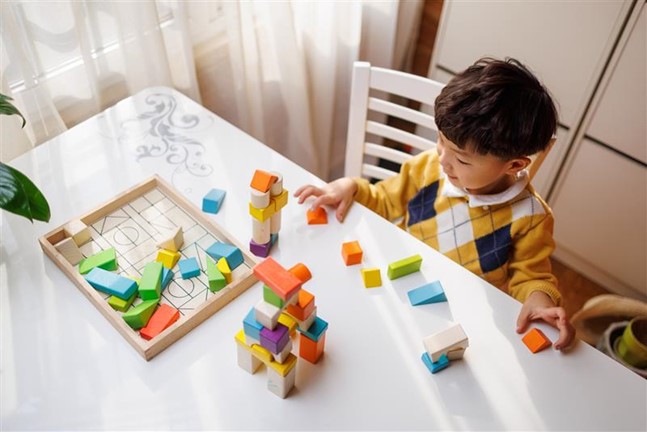The Role of Play in Early Childhood Development

The Importance of Play in Early Childhood Development
Play is vital to every child’s early years, shaping their growth in countless ways. Through play, children explore their world, develop essential skills, and build a foundation for lifelong learning. The importance of play in early childhood development cannot be overstated – it nurtures physical strength, problem-solving abilities, social connections, and emotional resilience. At Just Children Child Care Center, we emphasize the importance of play in early childhood development for families in Feasterville-Trevose, PA, Bensalem, PA, Philadelphia, PA, Medford, NJ, and Mount Laurel Township, NJ because play is often called “a child’s work” for good reason. It fosters curiosity, collaboration, and confidence, setting the stage for well-rounded development in every area of life.
Why Play Is Important in Early Childhood?
Play is a powerful tool for brain development. It allows children to explore the environment, test ideas, and solve problems creatively. Through play, they strengthen critical thinking, improve decision-making, and learn to adapt to new situations. Activities like building blocks, pretend play, or outdoor games enhance memory, attention, and language skills. Play fosters curiosity, which drives learning and discovery, while helping children develop social skills such as cooperation and empathy. These early experiences create a strong foundation for future success in school, work, and life, demonstrating the essential role of play in child development.
The Different Types of Play
Children explore and learn through a variety of different types of play. Each type of play offers unique benefits, contributing to physical, emotional, social, and cognitive development. By engaging in various play, children build skills that support them throughout life. The following list outlines the different types of play and the ways they help children thrive:
- Free Play – Children direct free play themselves, choosing how to explore and create without rules or structure. This kind of play builds independence and sparks innovation.
- Structured Play – Organized activities with clear rules or objectives guide structured play. These activities often teach teamwork, patience, and goal-setting.
- Physical Play—Running, jumping, climbing, or dancing are examples of physical play. This activity develops strength, agility, and coordination while promoting overall health.
- Imaginative/Role Play – Pretend scenarios, like playing house or acting as superheroes, encourage creativity. These activities also enhance empathy and interpersonal skills.
- Social Play – Group games and activities engage children in working together. Through this play, they learn cooperation, communication, and how to handle conflicts constructively.
- Cognitive Play—Activities such as puzzles, board games, or construction blocks challenge the mind and enhance critical thinking and problem-solving abilities.
How Play Contributes to Early Childhood Development
Play is a fundamental part of early childhood that fosters growth across many areas. Through play, children engage with their environment, explore ideas, and build critical skills that shape their development. These interactions lay the groundwork for a lifetime of learning, highlighting the importance of incorporating play into a child’s daily routine. Whether it involves physical movement, creative thinking, or social interaction, child development through play is a powerful tool that nurtures various aspects of a child’s growth. Below are key ways in which play supports child development:
- Physical Development – Play hones motor skills by encouraging children to jump, run, and climb. These activities improve coordination and build strength while supporting their overall health.
- Cognitive Development—Through activities like puzzles, block building, or pretend play, children enhance their problem-solving and decision-making skills. Play also boosts their memory as they engage in repetitive tasks.
- Social Development – Group play introduces concepts like sharing, communication, and teamwork. These experiences help children build friendships and understand social cues.
- Emotional Development – Play allows children to express emotions and learn self-regulation. This boosts confidence and helps healthily manage stress.
- Language Development – Play promotes communication skills by encouraging conversations and storytelling. Role-playing or group games expand vocabulary and foster language growth.
Prioritizing Play for a Brighter Future
At Just Children, we believe that play is the foundation for a child’s growth, creativity, and lifelong learning. Play-based learning in child development fosters problem-solving, social skills, and emotional well-being. By prioritizing play, parents and caregivers can create stronger bonds and give children the tools they need to succeed. Join us in making play a central part of daily routines, ensuring each child experiences joy while building essential life skills. Visit us today to explore how our programs nurture development through play, and take the first step toward shaping a brighter future for your child.
